Entrepreneurs want, mayors dream and Regionalization? Is it from this that it is born? The Independent Commission for Decentralization, coordinated by former socialist minister João Cravinho, came this Tuesday, May 7th, to the Algarve's Regional Coordination and Development Commission (CCDR), in Faro, to hear the opinion of mayors, businessmen (and others) on the process of decentralization of competences and on possible regionalization. The position is unanimous: the Algarveans want it.
In addition to João Cravinho, all members of the Commission, created in October, attended the seminar – Alberto João Jardim, Carmona Rodrigues, Adriano Pimpão, Helena Pinto, Fontaínhas Fernandes and João Ferrão – and listened to the wishes of the Algarve.
Rogério Bacalhau was the first mayor to give his opinion on the topic that «is always on our minds» and asked for «action and courage» to implement Regionalization and change «the current state of affairs», which is leaving the mayor « disappointed".
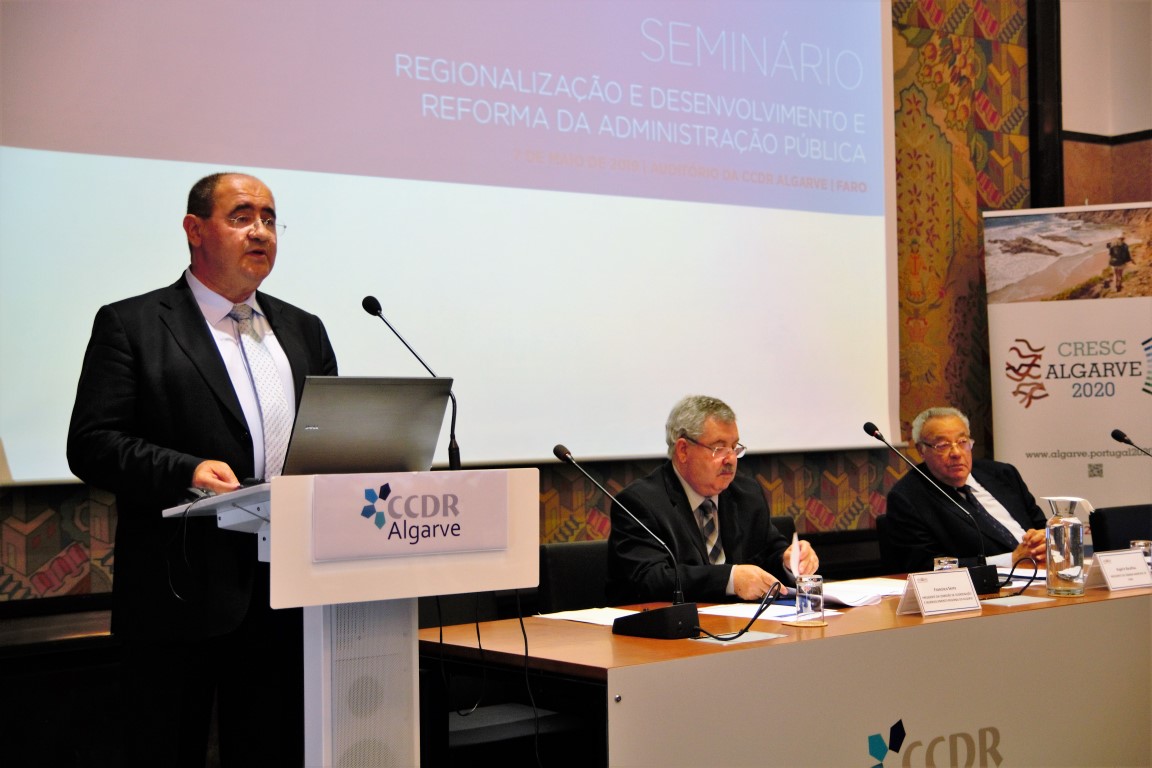
Despite having criticized the process of decentralization of competences to the municipalities, which is currently underway, calling it "difficult" and "impaired", the mayor of Faro considers that "a giant step" has been taken to bring decision-making power closer to the problems. Still, he argued, "it should have gone further."
João Cravinho, in his first intervention, explained that this commission was created due to the fact that the State is “so concentrated” that “it needs a deep review. Portugal is one of the most concentrated countries in the European Union, it is unanimous” and “the time is to study with a view to action”.
An action that Jorge Botelho, president of the Algarve Intermunicipal Community (AMAL), wants to be quick and effective so that Regionalization, which has been provided for in the Constitution since 1976, does not stay in the “drawer” much longer.
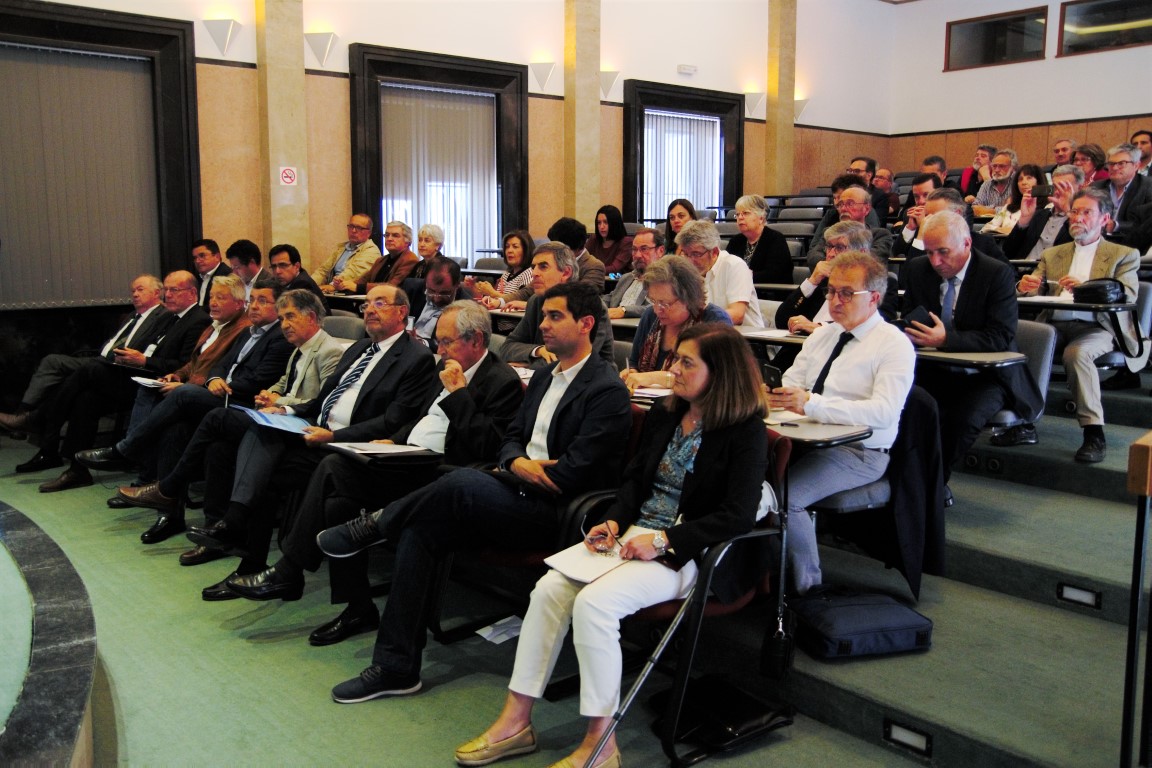
The mayor challenged the commission to "tell which way". In his opinion, the path “is for the Government to comply with the 1976 constitution and propose a regional model of State organization, with national, regional and local power”.
Botelho defends “a regional legislative assembly” elected, because “State organizations, at the regional level, can better solve problems, with proximity. Some competences, which are in the regional directorates, must be placed in the new elected entity».
And if there are those who say that Regionalization will serve to create more “pots” (a word often heard in the session), Jorge Botelho says that it won't be like that: the new entity “will have a technical staff, which doesn't need to be new. The technicians from the regional directorates will move to it».
“For every position created, there must be positions that have been terminated. Regionalization doesn't mean more employees, there doesn't have to be more positions. Quick and articulated responses are needed, which are not entangled in a cloak of bureaucracy. We will have a quick, competent response, complying with the law. These are the responsibilities that will then be evaluated in an electoral framework», he added.
António Costa, prime minister, has already gone public with saying that Regionalization will only take a new referendum – something that many of the participants in the session, such as Calçada Correia, a businessman, do not consider to be necessary. This new vote will involve a clarification of the population, which did not exist in the first one, in 1998.
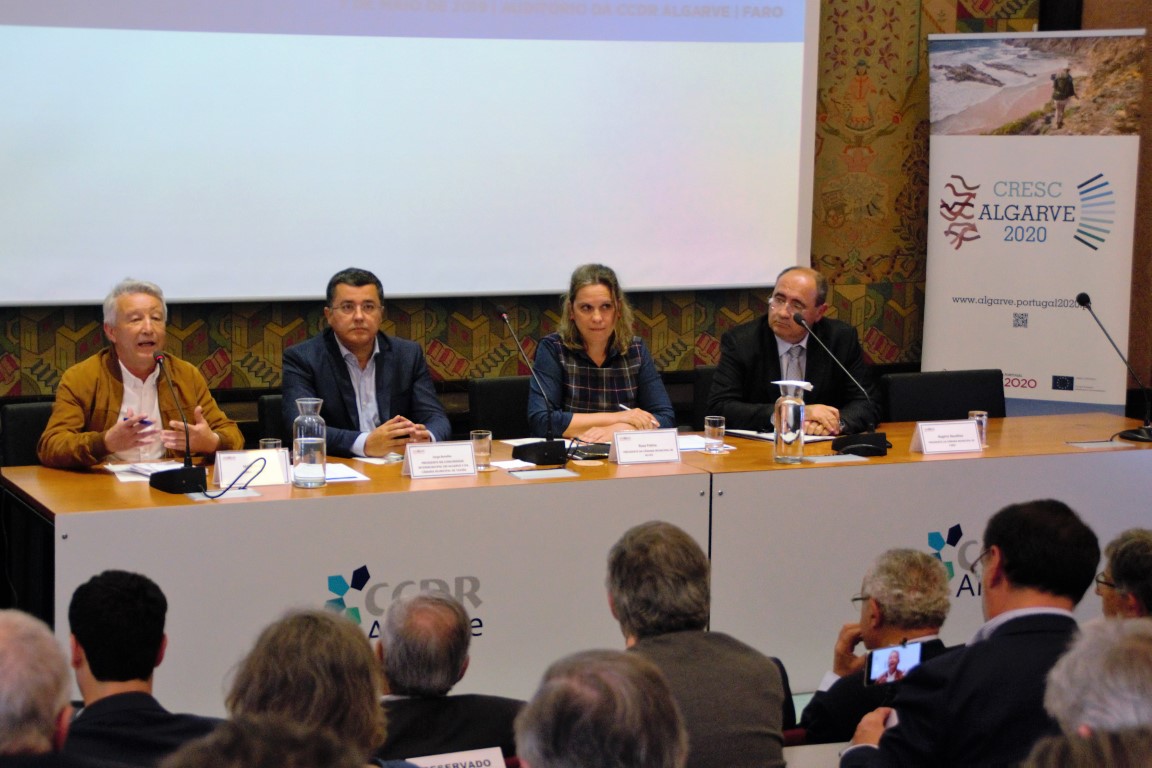
«We lost Regionalization in 1998, because it was poorly explained. This made the population afraid of what was to come. Now, if we explain very well what people will gain, they will agree», believes Jorge Botelho.
The idea of creating an elected regional entity is also defended by Rosa Palma, mayor of Silves, who criticized the way in which the decentralization of competences to municipalities and Intermunicipal Communities is currently being carried out.
“When decentralization is done “on the sauce”, which is what is being done, there is no serious regionalization. First, we have to elect someone in the region to take responsibility, for better or for worse. Thus, we are receiving competences that do not come with funds that allow us to take decisions», accused the mayor elected by the CDU, in Silves.
António Pina, mayor of Olhão (PS), who was not at the table, but asked to intervene, tuned to the same tuning fork.
“We have to define the competences. For that, we have to have income, financial resources and manage our territory. Those who manage and impose are unelected entities, the technical “greys”. When we want to promote inner development, we have to build in the forest, make paths in the forest, build the toilets in the forest. These are decisions that must be in the hands of the elected. We want to decide our own investments, whether we lower tolls, whether we want to intervene on the roads of the Algarve. We have to have a budget to then manage the territory», he defended.
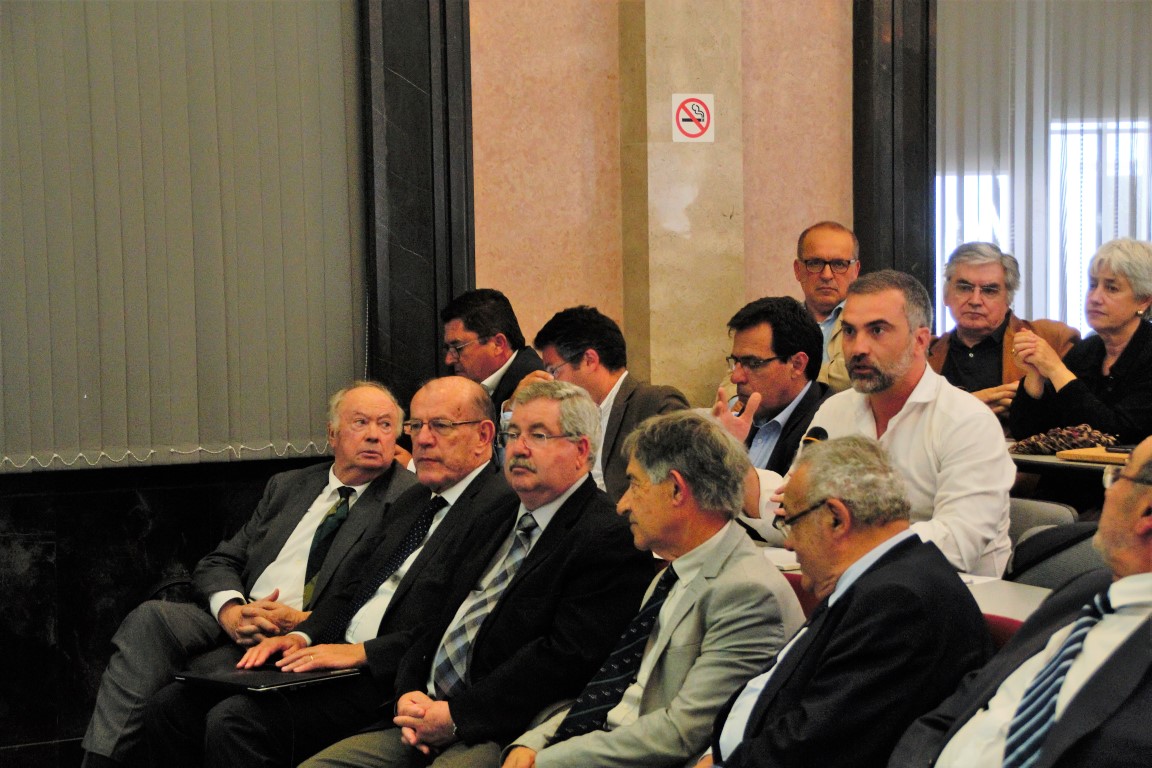
Rogério Bacalhau agreed with the “neighbor” from Oland: “It makes me confused that, in order to approve an urban project, we have to ask for an opinion from a wide range of entities. Why do I have to ask an entity that is governed by a legal framework for an opinion? The Chamber can also fulfill this framework. That should be our discussion: where should the powers be? If we reach the conclusion that there are powers that are in the municipalities and should not be there, I have no problem with that».
The mayor of Faro went further and exemplified: «to launch the fireworks, on New Year's Eve, we have to ask for opinions from nine entities».
If there is a consensus with regard to the importance of Regionalization, among mayors – the decentralization of competences is less consensual and Rosa Palma highlighted this –, in the panel for businessmen as well.
Calçada Correia, who is also a member of the Loulé Municipal Assembly, is permanent and considers that «the Algarve needs decentralization». For the businessman, in Portugal, "there is a regionalist feeling, mainly in the regions of the country that feel discriminated against" by the central power.
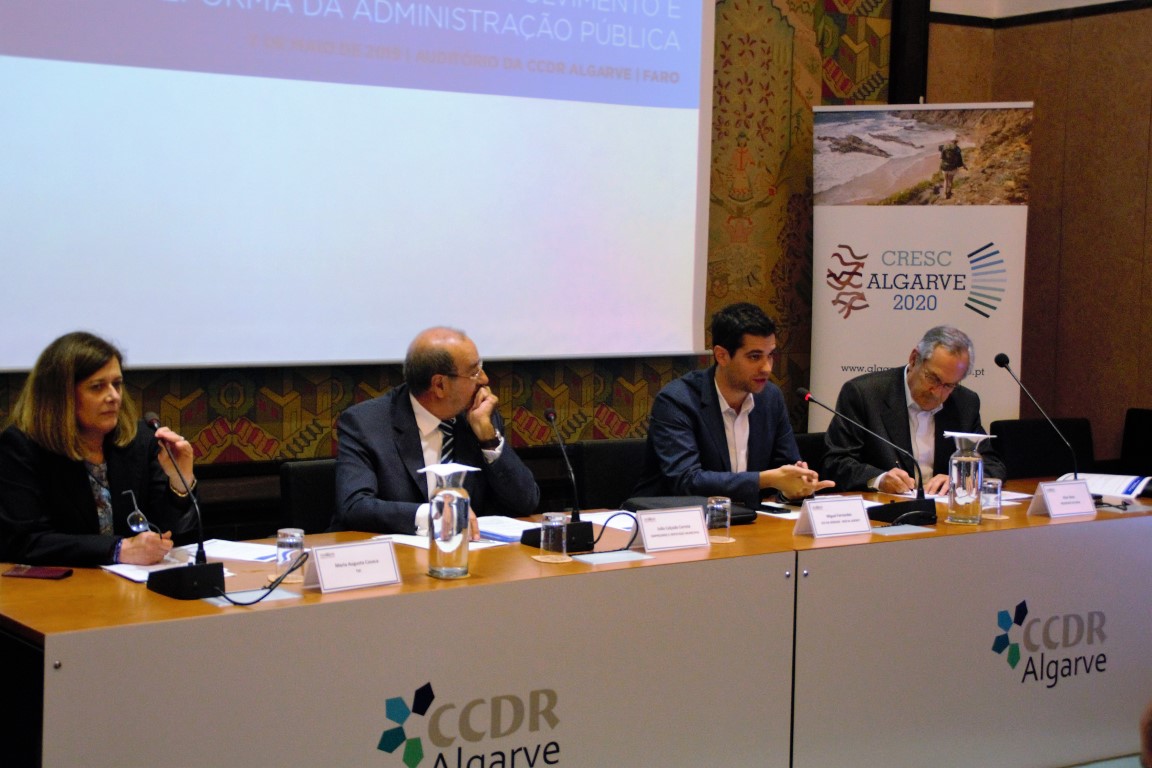
Vítor Neto, president of NERA, reinforced the idea and even said that «the future of the region, to a large extent, depends on the process of creating a true regional administration and a true regionalization».
For the former ruler, "if we don't move forward, the Algarve won't move forward" and "entrepreneurs are available to contribute to this battle."
Miguel Fernandes, CEO of Dengun, and one of the entrepreneurs involved in the creation of the Algarve Technological Pole, also wants Regionalization, even because of the difficulties he faced in implementing the project in the region. “We need more autonomy. In order to materialize the Technological Pole, despite being convinced that it would be the best for the region, we had to go to Lisbon».
The Polo Technological project was, in fact, highlighted by João Cravinho as an example of a project that “needs conditions to realize its full potential” and that should not “be dependent on funds from the Ministry of Finance”.
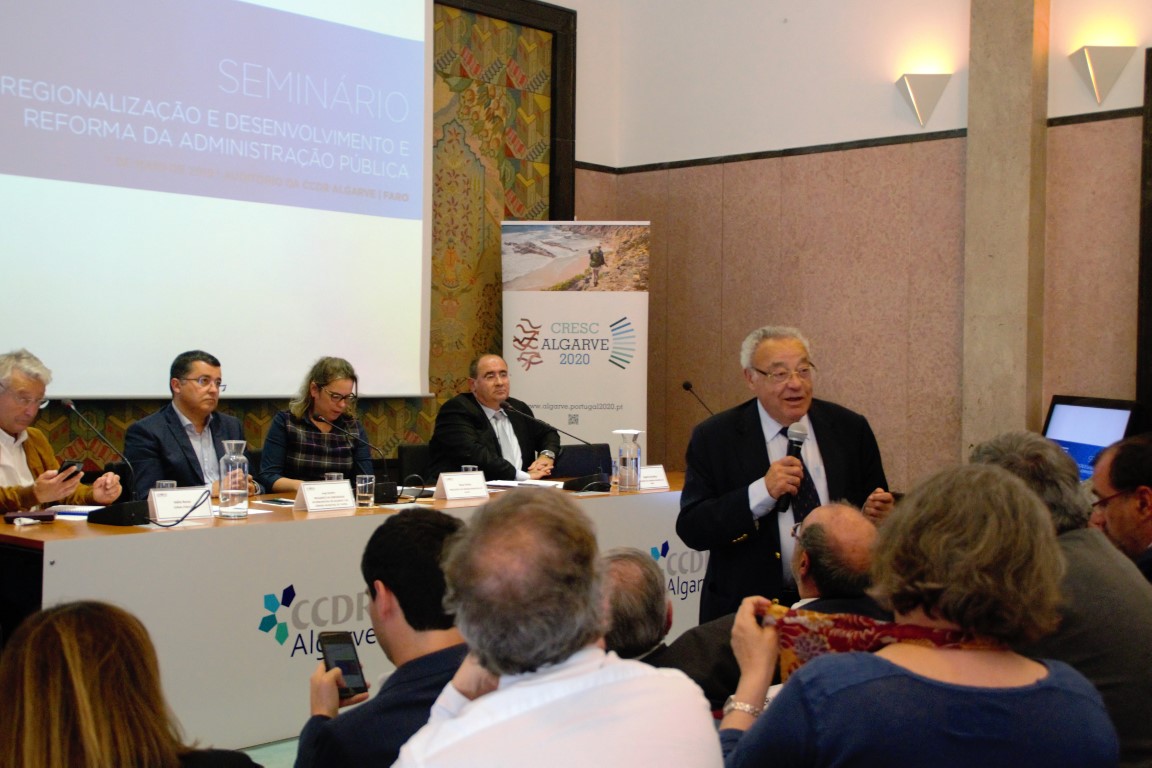
The coordinator of the Independent Commission assumes that «there are around 800 companies linked to the sea in the Algarve, but, seen from Lisbon, they do not exist. And there is potential for transformation if there is someone who builds, with businessmen, an idea for the region. But that, only with regionalization», he admitted.
The Algarve, according to João Cravinho, is a region «with its very own characteristics», so that regionalization is seen with good eyes: «there are no map issues, you know where the Algarve ends and there is a historical identity. Then, the distances are not great and there are no mountains to keep people away. There is a convergence and there are favorable conditions [for Regionalization to advance], without a doubt».
However, the official explained, the creation of a pilot region, as defended by the audience, has been out of the question since 1997, when the Constitution was revised, which establishes that the creation of regions must be simultaneous.
One of the objectives of this commission created in October, and which will have to present conclusions in July, is to find out "if the time has come to comply with the Constitution [and move forward with Regionalization]".
However, explained the former minister, “we are not blind supporters of Regionalization. There are risks and we have to put them on the table and find answers and solutions for them. We have to find ways and processes to overcome them before we start “stitching” the report. It's not that we don't have ideas, but we need, first of all, to listen to those who have experience, responsibility and knowledge of the problems. That is the purpose of this meeting: to ask those who know, those who feel and those who suffer, what can and must be corrected».
«Who knows, who feels and who suffers» said what he wanted: Regionalization. Is it this one?
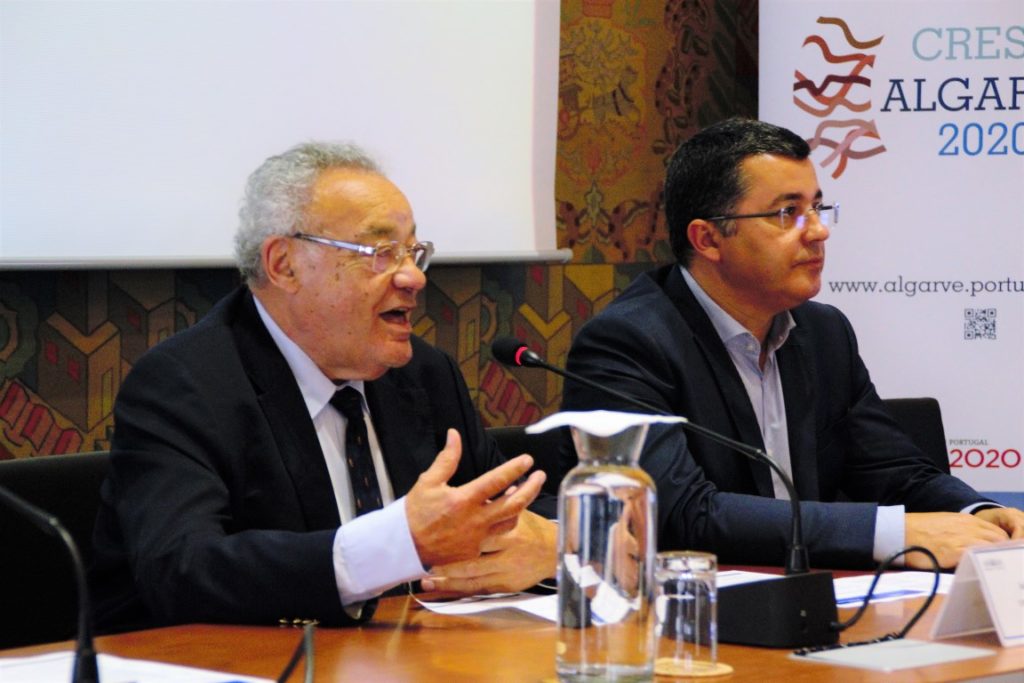


















Comments